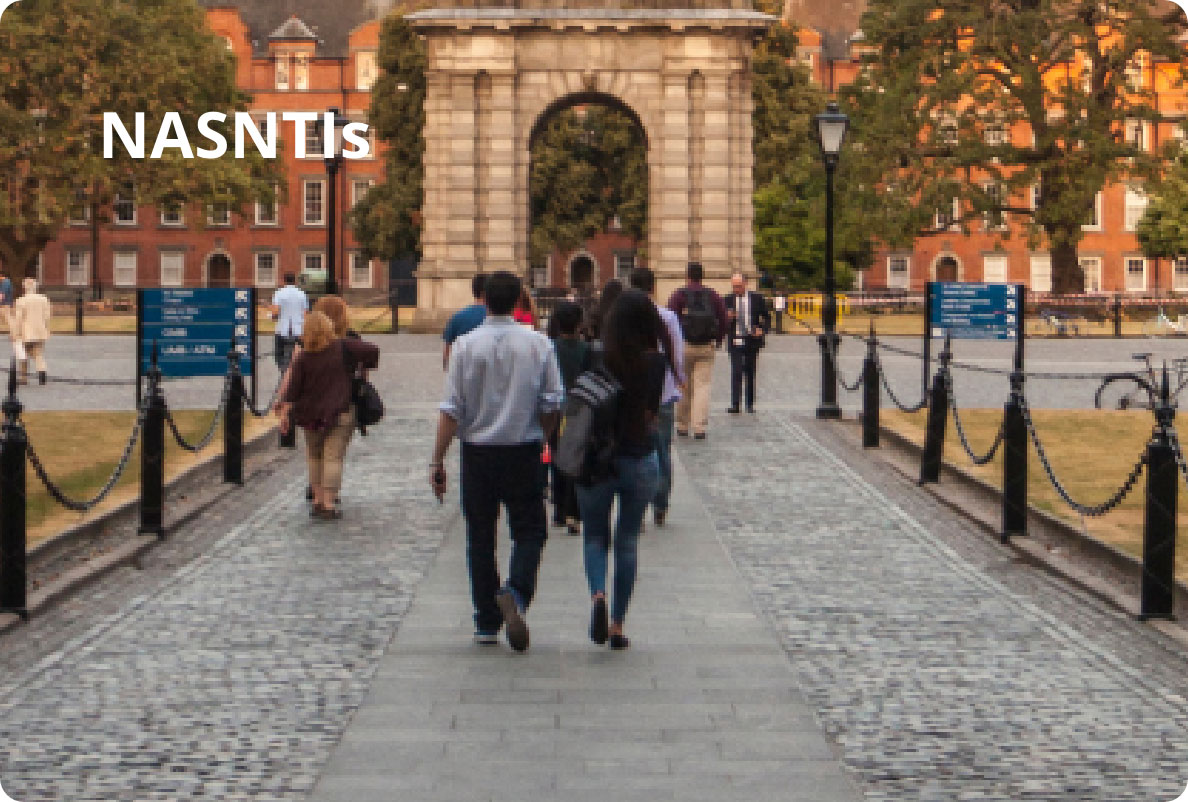What are Minority Serving
Institutions (MSIs/HBCUs)?
Minority Serving Institutions (MSIs) are colleges and universities with historic missions to support and uplift underrepresented scholar populations. MSIs represent nearly 20% of degree-granting colleges in the United States and together enroll over 5 million scholars across 700 colleges and universities. MSIs provide distinctive educational experiences that not only emphasize academic excellence but also nurture cultural values and traditions. They play a crucial role in promoting civic and community responsibility, helping to develop citizens who are well-prepared to thrive in and contribute to an increasingly diverse society.

Below are the seven different categories of MSIs:

Historically Black Colleges and Universities (HBCUs), are a group of approximately 100 institutions established before 1964. They were originally founded to provide higher education opportunities to Black Americans during a time when access to many colleges and universities was restricted. Although their primary mission was and continues to be the education of Black Americans, HBCUs are open to scholars of all races and have highly diverse scholar populations. The majority of HBCUs are in the southeastern United States, as well as in the District of Columbia and the Virgin Islands.
Delaware State University (DSU) in Dover, Delaware, is a part of the HBCU community. The university is known for its teaching, research, and public service excellence and strives to be the most diverse, contemporary HBCU in America. DSU offers undergraduate bachelor’s degree programs and master’s degree programs. Delaware residents may be eligible to attend DSU tuition-free through the Inspire Scholarship.

Predominantly Black Institutions (PBIs), are colleges and universities established after 1964 with a focused mission to support and educate a significant portion of Black American scholars. PBIs enroll at least 50% of scholars from low-income or first-generation households and serve at least 40% of Black American scholars. These institutions play a crucial role in providing access to higher education for historically underserved communities, helping to address educational disparities and promote social mobility. There are about 64 PBIs across the United States, each committed to fostering an inclusive and supportive learning environment for their diverse scholar populations.
One Pager: What are HBCUs & PBIs

Hispanic Serving Institutions (HSIs), are colleges and universities where at least 25% of full-time scholars are of Hispanic or Latino descent. These institutions are pivotal in educating Hispanic and Latino communities, providing tailored support and resources to help these scholars succeed. There are about 569 HSIs that enroll about 40% of all Hispanic scholars and 65% of all Latino scholars attending college in the United States. HSIs are essential in promoting educational access and equity, helping to bridge gaps in higher education for Hispanic and Latino scholars while enriching the broader educational landscape with diverse cultural perspectives.
Resource: What Are HSIs?

Tribal Colleges and Universities (TCUs), are a group of about 35 colleges with the mission to serve scholars from more than 250 federally recognized Indian tribes. These colleges are deeply committed to promoting tribal self-determination and supporting the educational and cultural needs of their respective communities. TCUs offer a unique blend of academic and cultural education, integrating traditional knowledge and values with modern academic disciplines. Most TCUs are located on or near reservation lands, providing accessible education to Native scholars and fostering community development. These institutions play a critical role in preserving and revitalizing Native cultures while empowering scholars with the skills and knowledge needed to thrive in today’s world.
Resource: What Are TCUs and NASNTIs?

Asian-American and Native American Pacific Islander Serving Institutions (AANAPISIs), are colleges and universities dedicated to educating Asian Americans, Native American Pacific Islanders, and scholars from low-income households. These institutions are committed to addressing the unique educational needs of these communities by providing culturally relevant programs and support services. There are over 207 AANAPISIs throughout the country. They play a vital role in ensuring that scholars from these diverse backgrounds have access to higher education opportunities. AANAPISIs help bridge gaps in educational attainment and promote success among scholars who may face various socio-economic challenges, fostering a more inclusive and equitable academic environment.
Click here to explore more AANAPISIs >
One Pager: What Are AANAPISIs?

Native American-Serving Nontribal Institutions (NASNTIs), are colleges and universities where at least 10% of students enrolled are Native scholars. These institutions are dedicated to serving Native scholars by providing tailored academic programs, resources, and support that address the unique challenges and opportunities faced by Native communities. Unlike Tribal Colleges and Universities (TCUs), which are often located on or near reservations, NASNTIs are nontribal institutions that still maintain a strong commitment to the education and cultural preservation of Native scholars. By fostering an inclusive environment, NASNTIs contribute to the academic success and empowerment of Native scholars across the United States.
Click here to explore NASNTIs >
One Pager: What Are TCUs and NASNTIs?

Alaska Native and Native Hawaiian Serving Institutions are colleges and universities dedicated to serving the educational needs of Alaska Native and Native Hawaiian scholars. These institutions are defined by their commitment to supporting these specific populations through culturally relevant programs and resources.
Alaska Native Serving Institutions (ANSIs): At least 20% of the student population at these schools comprises Alaska Native students. These institutions address the unique educational challenges and opportunities faced by Alaska Native communities, often integrating indigenous knowledge and traditions into their curricula.
Native Hawaiian Serving Institutions (NHSIs): At least 20% of the student population at these institutions is Native Hawaiian. These institutions work to preserve and promote Native Hawaiian culture, language, and traditions while providing educational opportunities that support the success of Native Hawaiian students.


Explore all Minority Serving Institutions with NASA’s MSI List
Developed by NASA’s Office of STEM Engagement Minority University Research and Education Project, the NASA MSI List is updated annually and lists all MSIs and their category.
